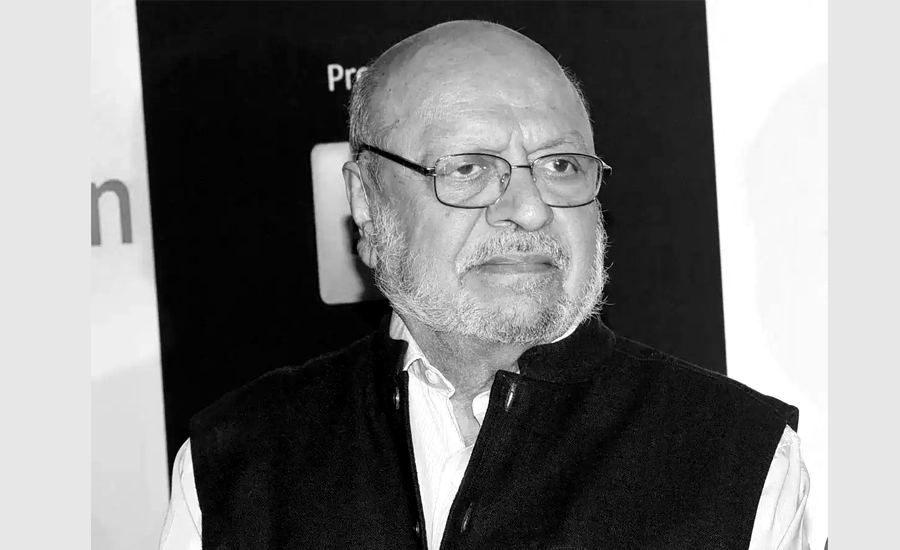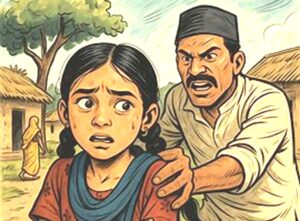Kathmandu. Famous Indian film director, screenwriter and producer Shyam Benegal died on Monday in Mumbai at the age of 90. Suffering from kidney failure for a long time, he breathed his last at 6:38 pm at Wockhardt Hospital, Mumbai Central.
His last rites will be performed on Tuesday. According to daughter Pia, Benegal was suffering from kidney disease. Two years ago, both his kidneys failed. Since then he was being treated by dialysis.
Benegal holds the record of winning the most national awards in India. He has been honored with this award for 8 films.
Bengali films gave great actors to Indian cinema. The lead cast includes Naseeruddin Shah, Om Puri, Amrish Puri, Anant Nag, Shabana Azmi, Smita Patil and cinematographer Govind Nihalani.
Apart from making documentaries on Jawaharlal Nehru and Satyajit Ray, he also directed ‘Yatra’, ‘Katha Sagar’ and ‘Bharat Ek Khoj’ serials for Doordarshan.
Shyam has produced 24 films, 45 documentaries and 15 advertisement films. He directed dozens of excellent films like Zubaida, The Making of the Mahatma, Netaji Subhash Chandra Bose: The Forgotten Hero, Mandi, Arohan, Welcome to Sajjanpur.
For his contribution to the film industry, he was awarded the Padma Shri in 1976 and the Padma Bhushan in 1991. Besides, won 8 national awards. Benegal was also awarded Dadasaheb Phalke Award, the highest honor of Indian cinema in 2005.
Benegal made his first film ‘Ankur’ in 1974. In this film, he has raised the issue of farmers of Andhra Pradesh. However, ‘Mujib – The Making of a Nation’ was his last film. The shooting of Mujeeb lasted for two years. This film was based on the life of Mujibur Rahman.
Shekhar Kapur writes on his death – Shyam Benegal brought a new wave in cinema. He will always be remembered as the person who changed the direction of Indian cinema with innumerable films like Ankur, Manthan. He made stars like Shabama Azmi and Smita Patil. Farewell my friend and guide.’
As Muldhar’s Hindi cinema entered an exciting new phase with the rise of ‘Angry Young Man’ in the 70s, Benegal pushed parallel cinema forward with his brilliant debut as a writer and director with Ankur (The Seedling, 1974). This started the parallel film movement in India.
Benegal’s films and aesthetics played a major role in the parallel cinema movement of the 70s and 80s. Benegal directed some of his best films – Ankur, Nishant (1975), Manthan (1976), Bhumika (1977), and Junoon (1979). Through these films, he emerged as a strong cinematic voice and a force to be reckoned with. Variety magazine has described Benegal as one of the leading faces of Indian cinema, a filmmaker known for his socially conscious storytelling.
‘A good friend who wants to see the development of Benegal Nepali films’
On October 17, 2071, Benegal was heard among the students of Oscar Film College in Kathmandu. At that time, he expressed interest and concern about the content and internationalization of Nepali films. On the same day, he also participated in a discussion session organized by the Indian Embassy.
In an interaction organized by the Indian Embassy and Oscar College, Benegal discussed with Nepali filmmakers, students and Tanneri. He said that for its sustainable future, Nepali films should cooperate with big markets like India and Pakistan.
“What we have to understand from the experience of the end of European cinema is that Nepal has to find foreign markets because it is difficult to operate from its own market,” Benegal said, “Nepal should make films in joint investment with India and Pakistan, which have the same culture. Characters with similar experiences and experiences can also be picked up in the content.’
Benegal had his own kind of recognition towards artists. He said at that time – a person who has to be taught to do this and do that cannot be an actor. An actor is someone who can understand what I am doing and why.’
He asked the producers of Nepali films to embrace the world view. Benegal suggested, ‘You should make a film with a global sense, not a language-centric film,’ ‘You don’t need any expensive cinema.’ He said that the director should be able to recognize the special qualities hidden in each actor.
Every actor has a hidden special quality. The director should be able to bring it out only by knowing it. Otherwise, that acting will be artificial’ said Benegal. He said that knowledge of technology and interest in research is a prerequisite for the director. ‘This is not a mechanical process’, he said, ‘it is a style of technology that interacts with the human mind. Your success depends on how well you touch people’s hearts.’
Benegal explained the style of story in the film in three ways. Some tell stories in the style of a teacher. Some people like to be given orders and instructions. Some like to tell stories like friends and some like to tell stories like Magante. All this depends on the audience’s interest’, he said.
Are you a communist? Benegal said, ‘No, I am not a communist. I am struggling to be a good filmmaker. The role of a good filmmaker is also to speak against the inequality of the society,’ he said.
He also appealed to filmmakers to pay attention to social issues. . Benegal, who has won India’s National Award eight times, said that not a single film directed by him was his favourite.








